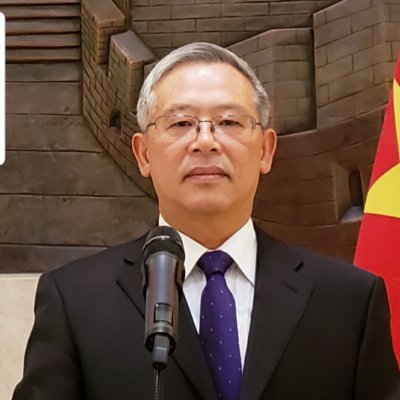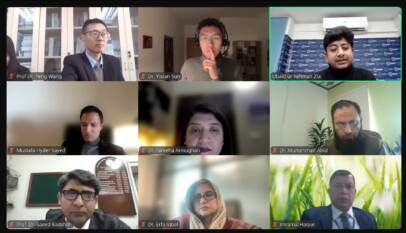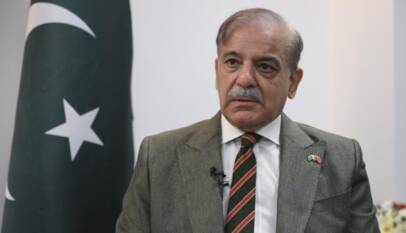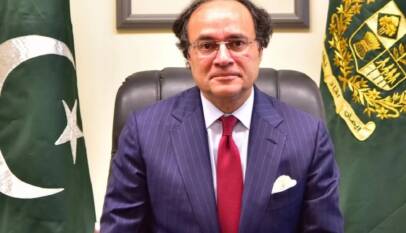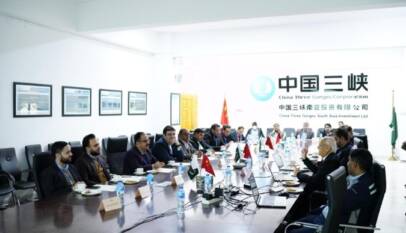Essential for Pakistanis to learn Chinese to gain from CPEC: Zhang Heqing
While chairing a webinar titled, “CPEC & New Direction of Chinese Teaching in Pakistan,” Cultural Counsellor and Director China Cultural Centre in Pakistan, Mr Zhang Heqing has said that as many as 5,000 jobs are being created for Chinese language learners all over Pakistan. He also said that Chinese language learning is very important in the future for acquiring jobs in Pakistan. The webinar was attended by the Faculty of Languages, National University of Modern Languages (NUML).
ISLAMABAD – Cultural Counsellor and Director China Cultural Centre in Pakistan, Mr Zhang Heqing on Thursday said that as many as 5,000 jobs are being created for Chinese language learners all over the Pakistan.
Chairing the webinar titled “CPEC & New Direction of Chinese Teaching in Pakistan” the other day, he said that Chinese language learning is very important in future for acquiring jobs in Pakistan.
The webinar was organised by the Department of Chinese Language, Faculty of Languages, National University of Modern Languages (NUML), under the supervision of Dr. Aftab Azeem Head of Chinese department, Ms. Sadaf Jabbar and the whole team.
Dr. Zhang Daojian, Vice President Confucius Institute Islamabad, Dr. Zhang Jiamei, Associate Professor School of Foreign Languages, Peking University China, Dr. Liu Yao, Associate Professor, Huanggang Normal University, Professor Dr. Muhammad Safeer Awan, Pro-Rector (Acads) and Dr. Shahid Siddiqui, Dean Faculty of Languages NUML were among the key speakers of the webinar.
Mr Zhang Heqing said that CPEC is a game changer for Pakistan. He also emphasised upon the need for Chinese language learning.
He briefly summed up the number of on-going and upcoming opportunities in Pakistan related to Chinese language.
In the opening remakes, Professor Dr. Safeer Awan, on behalf of the Rector welcomed all the distinguished guest speakers and the webinar participants on virtual link from China and Pakistan, extended warm welcome and appreciated the efforts made by HoD and his team.
In his speech, he shed light on the strategic importance of CPEC and its emerging social, economic and bilateral importance. In this context, he urged upon learning Chinese language to get optimum benefits of the project.
Moreover, he appreciated the inclusion of TCL (teaching of Chinese language) course in the university syllabi/curriculum and expressed to start this course for diploma, BS programme and at higher level academia.
He also assigned Dean (FoL), the task of successful completion and inclusion of the course on priority bases. In the end, he wished and foresees that Chinese department will flourish more under the proactive efforts of HoD and his team.
Dr. Zhang Daojian in his remarks suggested establishing a department of area studies in Chinese and Pakistani universities. He said that we are in the era of language learning where there is a rapid growth of artificial intelligence and machine translation mechanism.
The need for speakers and users of foreign language is increasing which cannot be fulfilled by computers and machine translating innovative tools. Face-to-face communication through language learning is an important trend for future education in Pakistan.
He also urged the importance of vocational and skilled-based learning education under Chinese language learning environment.
Dr. Zhang Jiamei from Peking University also addressed to the seminar. In her remarks, she emphasised the importance of cultivating talent for the country, region and whole world. She elaborated the need of cultivating research-oriented and application-oriented talent.
First type of talent will help in promoting and understanding history, culture and social development of the target country, they will work in fields of research, think tank, diplomacy and cultural exchanges in future. While the second type of talent will be engaged in translation, cultural exchanges, economic and trade communication, foreign liaison etc.
In her closing remarks, she said that whether in economic cooperation or in international exchanges, we should play the role of “ambassadors” in communications, upgrade the tool capacity of “translation” and actively promote the mutual understanding between the two people in the practice of culture and people-to-people exchanges.
In the field of research, we should take language learning as the starting point to understand development process of the target country, train scientific research and think tank talents for the study of bilateral relations, in deep regional development and future strategic cooperation. Cultivate successors for the inheritance of bilateral friendship, and make Chinese language a compulsory course for the study of china related topics in the curriculum.
Dr. Shahid Siddique, Dean Faculty of Language NUML, in his closing remarks, highlighted that language is a kind of power. It is not only a tool for communication; it is an identity market, linked with socio cultural values of a country. Linguistic imperialism of English is gone now, and for Pakistan, the future of Chinese language learning is inevitable now.
He said that there is rising demand for Chinese language learning in Pakistan, as Chinese language is becoming a part of curriculum of many schools in Pakistan. In this regard, we do need qualified teachers equipped with professional teaching techniques.
He urged the need for inter departmental meeting and dialogues to share the ideas and expertise to promote teachers education diploma in the field of language teaching in Pakistan.
Zhang Heqing, Cultural Counsellor, in his concluding remarks, ensured to extend full support of Chinese Embassy and China Cultural Centre in promoting Chinese Language Learning in Pakistan.
Experts highlight green SEZs under CPEC for sustainable development
ISLAMABAD – The experts on Monday emphasised the significance of enhanced collabor…



